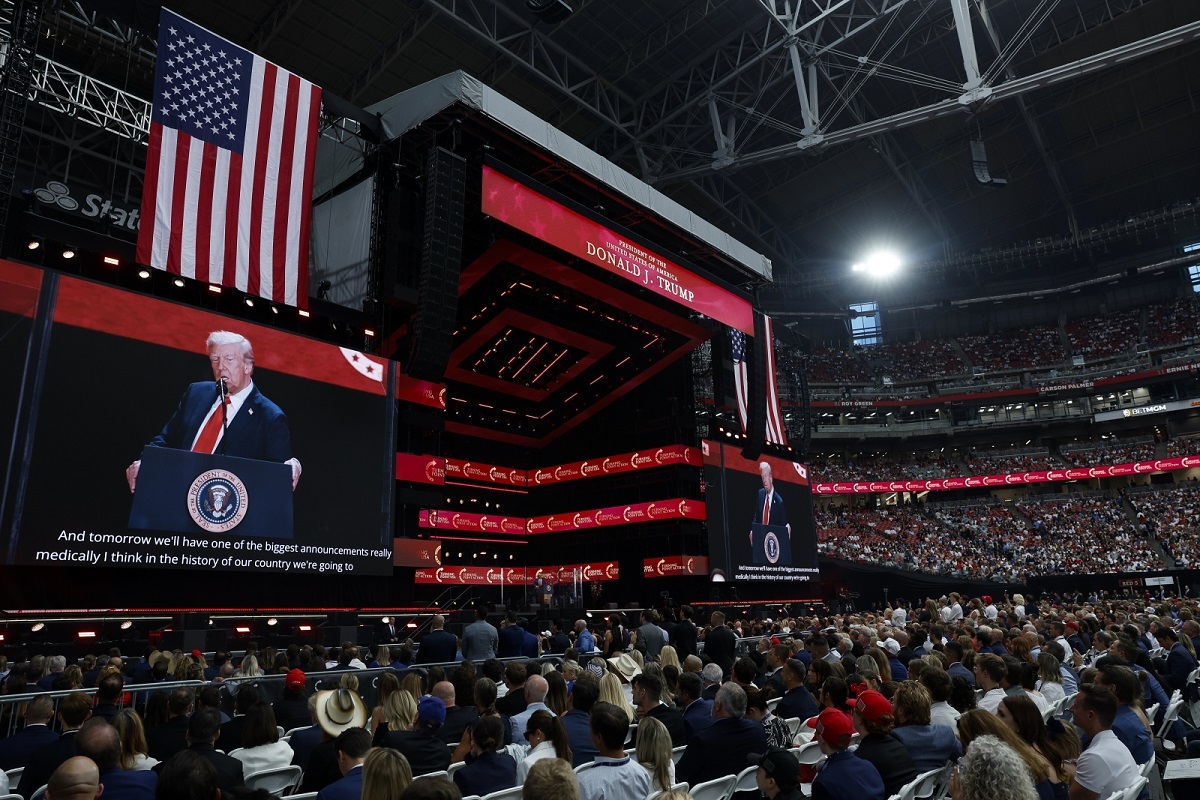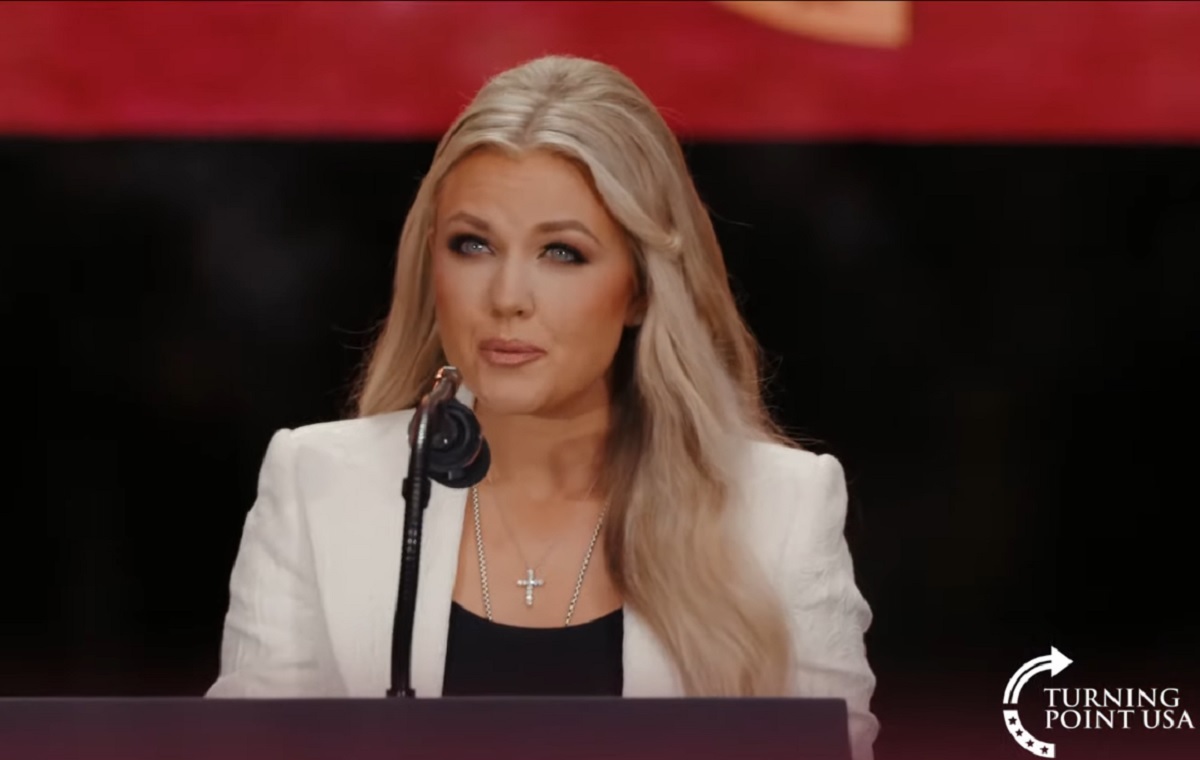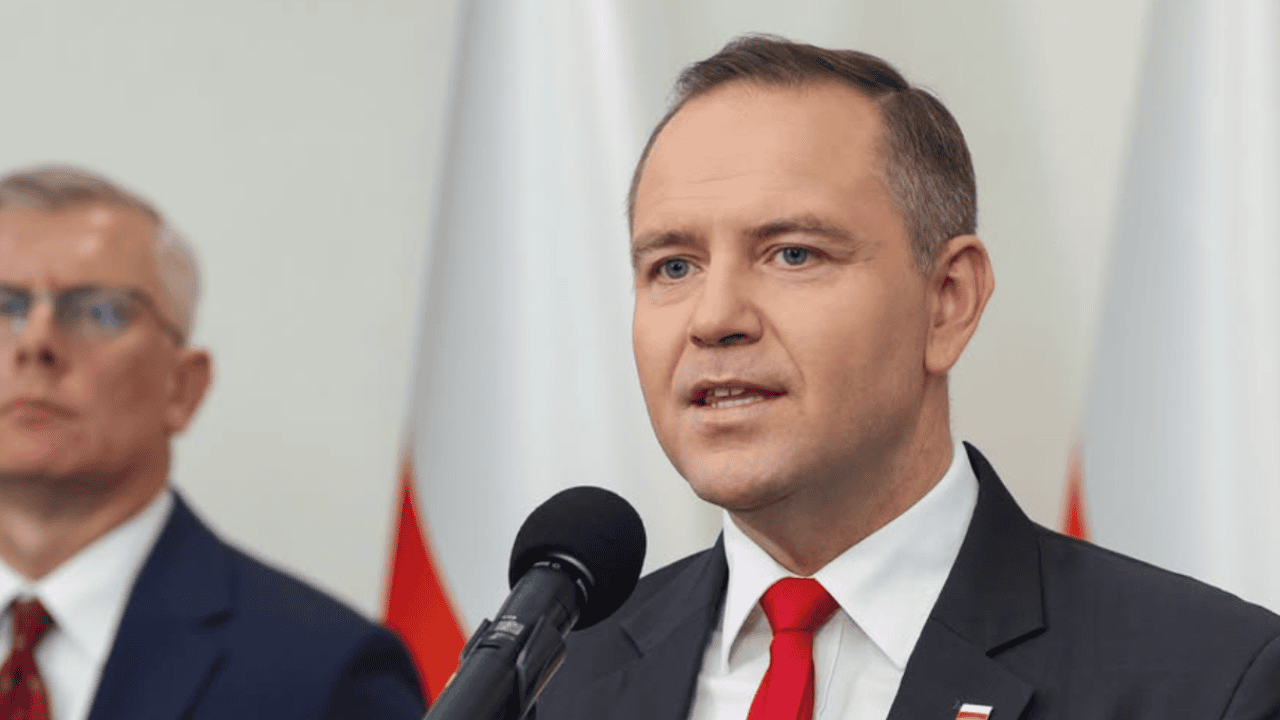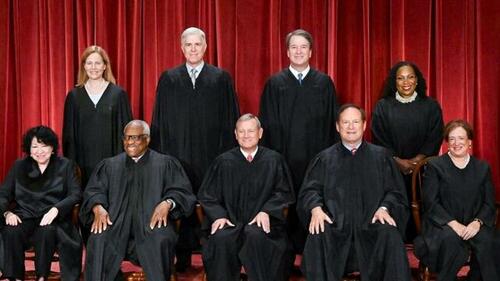
Supreme Court Inadvertently Releases 'Idaho Emergency Abortion’ Opinion
Authored by Zachary Stieber via The Epoch Times (emphasis ours),
The U.S. Supreme Court released an opinion in an abortion case on June 26 but quickly unpublished the ruling, in what a spokesperson described as a mistake.
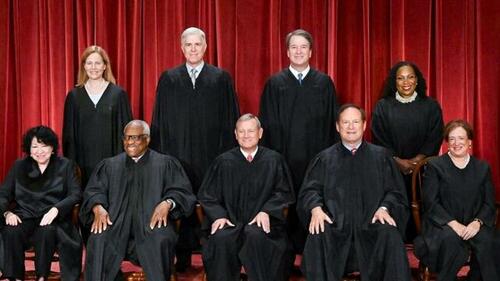 Members of the Supreme Court pose for a group photo at the Supreme Court in Washington on April 23, 2021. Standing from left: Justices Brett Kavanaugh, Elena Kagan, Neil Gorsuch, and Amy Coney Barrett. (Erin Schaff/Getty Images)
Members of the Supreme Court pose for a group photo at the Supreme Court in Washington on April 23, 2021. Standing from left: Justices Brett Kavanaugh, Elena Kagan, Neil Gorsuch, and Amy Coney Barrett. (Erin Schaff/Getty Images)The opinion involves a case against an Idaho law that bans most abortions.
The opinion “has not been released,” Patricia McCabe, a spokesperson for the Supreme Court, told The Epoch Times in an emailed statement.
“The court’s publications unit inadvertently and briefly uploaded a document to the court’s website.”
She said the opinion will be published “in due course.”
The nation’s top court had an opinion release day on Wednesday and is scheduled to publish additional opinions on Thursday and Friday.
A draft opinion in a separate case that challenged the Supreme Court’s 1973 decision in Roe v. Wade was leaked in 2022, setting off protests against justices believed to be backing the opinion. The final ruling, when issued, struck down Roe v. Wade.
The Idaho case deals with a law that prohibits doctors from performing abortions, with exceptions in any trimester in cases where doctors believe abortions are necessary to prevent the death of the pregnant woman or unborn child. The law also contains exceptions during the first trimester for women who were the victims of rape or incest.
The law enables felony charges to be brought against doctors who violate the statute.
Before the Idaho law took effect in August 2022, though, it was blocked by a federal judge. Judge Lynn Winmill said the state law clashed with the Emergency Medical Treatment and Labor Act (EMTALA), a federal law that requires emergency room doctors at hospitals that receive Medicare funds to offer treatments to stabilize patients who arrive with emergency conditions.
Judge Winmell pointed to the U.S. Constitution’s Supremacy Clause.
“At its core, the Supremacy Clause says state law must yield to federal law when it’s impossible to comply with both,” he wrote as he entered a preliminary injunction.
A panel of the U.S. Court of Appeals for the Ninth Circuit in 2023 stayed the ruling. EMTALA “does not require abortions, and even if it did in some circumstances, that requirement would not directly conflict with” the Idaho law, U.S. Circuit Judge Lawrence VanDyke, writing for the panel, said. The full court later vacated the stay, but the Supreme Court reimposed it while it considered the case.
In the opinion briefly published on Wednesday, which was obtained by Bloomberg News, justices ordered the injunction put back in place and said they should have not granted Idaho’s emergency request to review the case.
Justice Elena Kagan said in a concurring opinion that Idaho’s arguments “do not justify, and have never justified, either emergency relief or our early consideration of this dispute.” She wrote that “EMTALA requires hospitals to provide abortions that Idaho’s law prohibits” and that “Idaho’s law is preempted.” She was joined by Justices Sonia Sotomayor and Ketanji Brown Jackson.
Justice Jackson said in a separate partial concurrence and partial dissent that because the court already acted in the matter, it should not back away from it and should instead proceed to its merits. “There is simply no good reason not to resolve this conflict now,” she said.
Justice Amy Coney Barrett said in a concurring opinion that she’s become convinced by more detailed information presented in the case, including at oral argument, that the case is not appropriate for resolution by the court before the full Ninth Circuit takes up the matter.
“Based on the parties’ representations, it appears that the injunction will not stop Idaho from enforcing its law in the vast majority of circumstances,” she said. Judge Barrett was joined by Justices John Roberts and Brett Kavanaugh.
Justice Samuel Alito wrote in a dissent that EMTALA requires Medicare-funded hospitals to care for pregnant women and their unborn children, which is an ambiguity that the court should resolve.
“No one who has any respect for statutory language can plausibly say that the government’s interpretation is unambiguously correct,” he said. “And in any event, Idaho never consented to any conditions imposed by EMTALA and certainly did not surrender control of the practice of medicine and the resolution of abortions within its territory.”
Justice Alito was joined by Justice Clarence Thomas and Justice Neil Gorsuch.
The case will now move forward in the Ninth Circuit, although it could be taken to the Supreme Court again at a later stage.
Tyler Durden
Wed, 06/26/2024 – 21:00

 1 rok temu
1 rok temu
